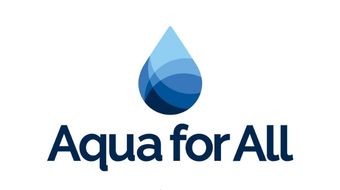The Toilet Board Coalition has officially endorsed the Global Menstrual Collective’s Statement for the 2021 Generation Equality Forum. This document outlines how menstrual health and hygiene are essential for achieving the Gender Equality Acceleration Plan. In particular, it states how menstrual health and hygiene connect to the actions of the Bodily Autonomy and SRHR Action Coalition and includes the GMC’s commitment to contribute to this coalition.
Every day, more than 320 million people menstruate. Menstruation is a normal biological process experienced by half the world’s population for a significant part of their lives. Millions of women, girls and other people who menstruate are adversely affected by negative social norms, discriminatory menstrual practices and inadequate menstrual health2 and hygiene services. This has a negative impact on their sexual and reproductive health and rights, psycho-social well-being, educational and work opportunities, undermining progress towards gender equality and the realisation of human rights. Progress on menstrual health & hygiene (MHH) is vital to realise the four actions on bodily autonomy and sexual and reproductive health and rights defined by the Action Coalition3 .
Commitment from the Global Menstrual Collective to the Generation Equality Forum Action Coalition on Bodily Autonomy and Sexual and Reproductive Health and Rights
The Global Menstrual Collective commits to deliver its five-year strategy of collective, evidence-based advocacy to apply persistent pressure on those with international and national decision-making power and influence over the integration of menstrual health and hygiene concerns into policies, programmes, services and budgets. Our advocacy will use good evidence, and clear, effective, targeted messages communicated at opportune moments. We will take action to change social norms around menstruation to create environments where government, business and civil society leaders are encouraged to act.
To achieve our strategy, GMC members collectively commit to deliver:
- Production and dissemination of a series of policy briefs and case studies on the contributions of menstrual health and hygiene to relevant SDGs.
- Baseline research into spending on menstrual health and hygiene and track progress made over 5 years.
- A cohesive set of metrics on menstrual health and hygiene that is agreed on and used by intergovernmental bodies responsible for monitoring accountability for SDG commitments in the areas of sexual and reproductive health, education, water supply and sanitation, health and protection in humanitarian sectors.
- A new research agenda on menstrual health and hygiene based on evidence gaps identified by stakeholders; assist bridging relationships between researchers, practitioners and donors; and advocate for donor champions to finance research guided by the Evidence Gaps analysis of the GMC.
- Facilitation and convening spaces for donor and government champions to vocalise their support for inclusion of menstrual health and hygiene into global and regional policies, strategies and SDGs.
- Advocacy for increased investment in MHH and identify, utilise and leverage opportunities for policy and cross-sectoral integration.
Endorsing organisations:
African Coalition for Menstrual Health, Days for Girls, Irise International, Madami, MSI Reproductive Choices, PSI, PSI Europe, Save the Children, Simavi, The Case for Her, Toilet Board Coalition, WASH United, WaterAid.






